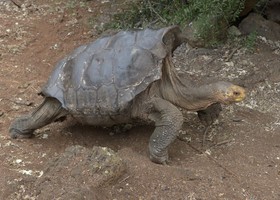Study finds last homo erectus settlement existed in Indonesia 100,000 years ago
Fewed by - Muzammil Zafar
Russell Ciochon, a paleoanthropologist at the University of Iowa, recently concluded a study which found that 100,000 years ago, long after the homo erectus species had gone extinct in the rest of the world, a colony of homo erectus that may have been the last of the species existed on the island of Java in Indonesia before homo sapiens arrived almost 40,000 years ago.
indonesia
species
island
russell-ciochon
paleoanthropology
university-of-iowa
homo-erectus
homo-sapiens
java
colony
Thu Dec 19 -
ScienceMag

